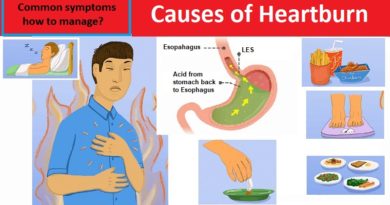Understanding Benign Prostatic Hyperplasia (BPH) Treatment with Medications
Last Updated on 02/09/2026 by Helal Medical
While Benign Prostatic Hyperplasia (BPH) is not life-threatening, treatment is important to avoid uncomfortable urinary symptoms including frequent urination, difficulty starting urination, weak urine flow, and the sensation of incomplete bladder emptying. Fortunately, several treatment options are available to manage the condition and improve quality of life. This article will explore the treatments and medications for BPH, providing both the brand and generic names for each medication.
Understanding Benign Prostatic Hyperplasia (BPH)
The prostate gland is part of the male reproductive system, and surrounds the urethra, (the tube that carries urine from the bladder out of the body). For some men, as they age, the prostate enlarges, a condition known as BPH. The enlarged prostate can press against the urethra, causing urinary problems. While the exact cause of BPH is unclear, it is believed to be related to hormonal changes in aging men, particularly shifts in testosterone and dihydrotestosterone (DHT) levels.
Treatment Options for BPH
Treatment depends on the severity of the symptoms. In mild cases, lifestyle changes and monitoring can improve the condition. However, for moderate to severe symptoms, medication or surgery will be necessary. Below, we’ll focus on medication options for BPH treatment.
Medications for Benign Prostatic Hyperplasia (BPH)
Several medications are available to help manage the symptoms. They work in different ways and can be prescribed in combination for better symptom relief. The main categories include alpha-blockers, 5-alpha reductase inhibitors, and combination therapies. Additionally, phosphodiesterase-5 (PDE5) inhibitors are sometimes used.
1. Alpha-Blockers
Alpha-blockers work by relaxing the muscles in the prostate and the bladder neck, making it easier to urinate. They do not reduce the size of the prostate but can relieve the symptoms. Alpha-blockers are often the first line of treatment for men with moderate to severe BPH symptoms.
- Tamsulosin (Brand name: Flomax) is one of the most commonly prescribed alpha-blockers for BPH. It targets the prostate and bladder muscles, reducing symptoms.
- Alfuzosin (Brand name: Uroxatral) is another alpha-blocker that helps to relax the muscles in the urinary tract.
- Doxazosin (Brand name: Cardura) is an alpha-blocker that works by relaxing the muscles in the prostate and bladder neck. It can also treat high blood pressure.
- Terazosin (Brand name: Hytrin), like doxazosin, is used for both high blood pressure and BPH.
2. 5-Alpha Reductase Inhibitors
They work by blocking the production of dihydrotestosterone (DHT), a hormone that contributes to prostate enlargement. These medications can help shrink the prostate over time, providing long-term relief of symptoms. However, they can take several months to produce noticeable results.
- Finasteride (Brand name: Proscar) reduces the size of the prostate by lowering DHT levels. It is often prescribed for men with larger prostates and works best when used for an extended period.
- Dutasteride (Brand name: Avodart) like finasteride, Dutasteride inhibits the conversion of testosterone to DHT. It can be used alone or in combination with other medications to treat BPH.
3. Combination Therapies
In some cases, patients can use a combination of alpha-blockers and 5-alpha reductase inhibitors to give more effective relief from BPH symptoms. Combination therapy offers the benefits of both immediate symptom relief and long-term prostate shrinkage.
- Tamsulosin + Dutasteride (Brand name: Jalyn)
It is a combination of Tamsulosin, an alpha-blocker, and Dutasteride, a 5-alpha reductase inhibitor. It provides quick symptom relief while gradually reducing the size of the prostate.
4. Phosphodiesterase-5 (PDE5) Inhibitors
Phosphodiesterase-5 (PDE5) inhibitors, which are commonly used to treat erectile dysfunction, can also be used to treat BPH. They work by relaxing the smooth muscle in the bladder and prostate.
- Tadalafil (Brand name: Cialis) is a PDE5 inhibitor that is primarily used to treat erectile dysfunction but is also approved for the treatment of BPH. It helps improve both urinary symptoms and erectile functions in men with BPH.
5. Anticholinergics
In some cases, men with BPH may experience bladder overactivity, leading to frequent urination and urgency. Anticholinergic medications can help relax the bladder muscles and reduce these symptoms.
- Oxybutynin (Brand name: Ditropan) is an anticholinergic medication that can help reduce the symptoms of overactive bladder in men with BPH.
- Tolterodine (Brand name: Detrol) is another anticholinergic medication. It works by relaxing the bladder muscles.
Other Treatment Options for BPH
There are several other treatment options for BPH, in addition to medications, including minimally invasive procedures and surgery. These options are typically considered when medications are not effective or when the prostate is significantly enlarged. Some of these treatments include:
- Transurethral Resection of the Prostate (TURP): A surgical procedure to remove excess prostate tissue.
- Laser Therapy: Laser energy is used to remove or shrink prostate tissue.
- Prostate Urethral Lift (PUL): This minimally invasive procedure involves placing small implants to hold the prostate tissue away from the urethra, reducing obstruction.
Lifestyle Changes for Managing BPH
Certain lifestyle changes can help manage the symptoms of BPH. These include:
- Dietary Adjustments: Reducing the intake of caffeine, alcohol, and spicy foods can help relieve urinary symptoms.
- Staying Active: Regular physical activity can improve bladder functions and reduce the urinary problems.
- Bladder Training: Techniques such as timed voiding and pelvic floor exercises can help improve bladder control.
SUMMARY
Benign Prostatic Hyperplasia (BPH) is a common condition among aging men, but there are many treatment options available to manage its symptoms. Medications including alpha-blockers, 5-alpha reductase inhibitors, and PDE5 inhibitors can relieve the symptoms, while combination therapies offer a more comprehensive approach. Additionally, lifestyle changes and surgical interventions are considered for more severe cases.
If you’re experiencing symptoms of BPH, consult us to discuss the most suitable treatment options for your specific condition.
You can also visit us at 1679 Mabini St corner Malvar St, Malate, Manila.
Your health and well-being are our priority, and we’re here to help you find the best solution for managing BPH.
Discover more from Helal Medical Manila
Subscribe to get the latest posts sent to your email.




